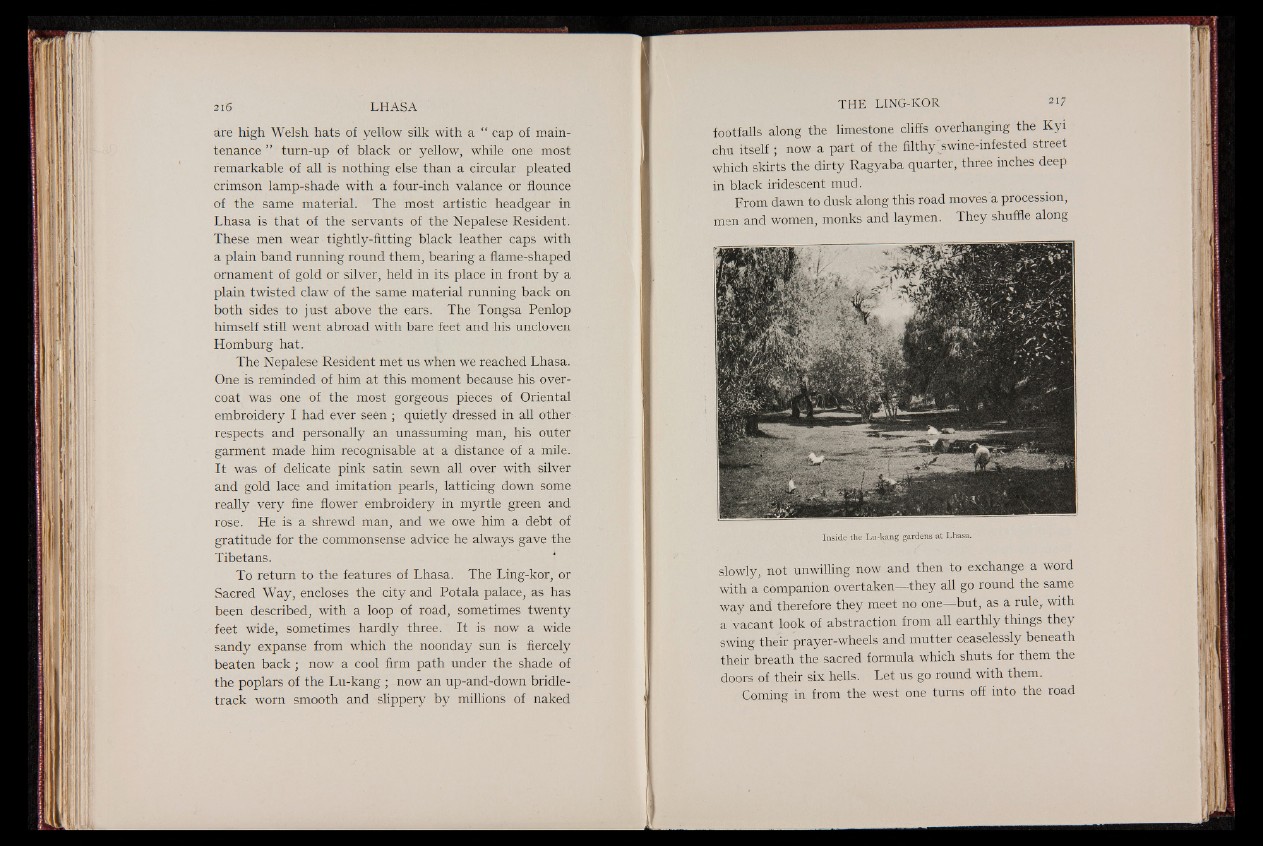
are high Welsh hats of yellow silk with a “ cap of maintenance
| turn-up of black or yellow, while one most
remarkable of all is nothing else than a circular pleated
crimson lamp-shade with a four-inch valance or flounce
of the same material. The most artistic headgear in
Lhasa is that of the servants of the Nepalese Resident.
These men wear tightly-fitting black leather caps with
a plain band running round them, bearing a flame-shaped
ornament of gold or silver, held in its place in front by a
plain twisted claw of the same material running back on
both sides to just above the ears. The Tongsa Penlop
himself still went abroad with bare feet and his uncloven
Homburg hat.
The Nepalese Resident met us when we reached Lhasa,
One is reminded of him at this moment because his overcoat
was one of the most gorgeous pieces of Oriental
embroidery I had ever seen ; quietly dressed in all other
respects and personally an unassuming man, his outer
garment made him recognisable at a distance of a mile.
It was of delicate pink satin sewn all over with silver
and gold lace and imitation pearls, latticing down some
really very fine flower embroidery in myrtle green and
rose. He is a shrewd man, and we owe him a debt of
gratitude for the commonsense advice he always gave the
Tibetans.
To return to the features of Lhasa. The Ling-kor, or
Sacred Way, encloses the city and Potala palace, as has
been described, with a loop of road, sometimes twenty
feet wide, sometimes hardly three. It is now a wide
sandy expanse from which the noonday sun is fiercely
beaten back ; now a cool firm path under the shade of
the poplars of the Lu-kang | now an up-and-down bridle-
track worn smooth and slippery by millions of naked
footfalls along the limestone cliffs overhanging the K yi
chu itself ; now a part of the filthy J5wine-infested street
which skirts the dirty Ragyaba quarter, three inches deep
in black iridescent mud.
From dawn to dusk along this road moves a procession,
men and women, monks and laymen. They shuffle along
Inside the Lu-kang gardens at Lhasa.
slowly, not unwilling now and then to exchange a word
with a companion overtaken— they all go round the same
way and therefore they meet no one but, as a rule, with
a vacant look of abstraction from all earthly things they
swing their prayer-wheels and mutter ceaselessly beneath
their breath the sacred formula which shuts for them the
doors of their six hells. Let us go round with them.
Coming in from the west one turns off into the road